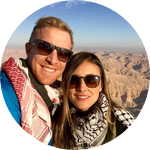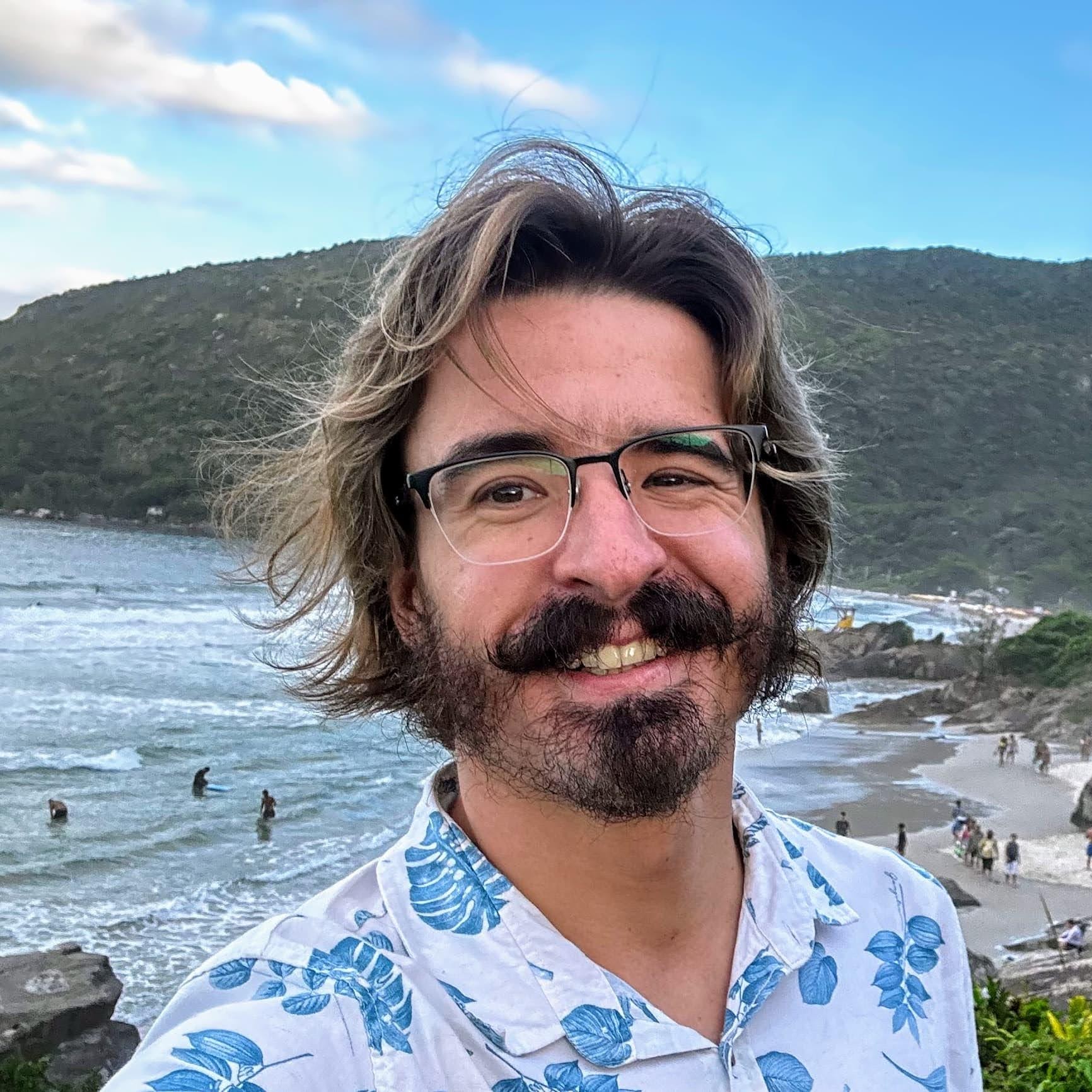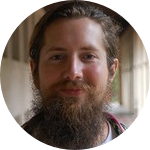About This Project
Pode Crer was launched in 2021 to provide innovative STEM education to marginalized youth in Brazil, serving 300 youth per year, ages 11-24 with workshops twice a week and extra activities: field trips, robotics competitions, advanced classes and a hackathon.
We want to implement a WhatsApp based audio-survey framework to collect data from students, family and community members to evaluate the impact of Pode Crer.
Learn more at https://vilsongroh.org
Ask the Scientists
Join The DiscussionWhat is the context of this research?
Pode Crer is a new complementary education program launched by the Vilson Groh Institute in 2021 to serve vulnerable and marginalized youth from low income families in the greater Florianópolis region in Brazil. Each year about 300 youth ages 11-24 participate in the program. Pode Crer was designed to provide a path for marginalized youth to enter the knowledge economy and break the cycle of urban misery in Brazil.
We want to implement a WhatsApp based data gathering framework to collect data from Pode Crer participants on the impact of the program and do rigorous impact evaluation of Pode Crer, to turn the program into a reference for educational policy in Brazil.




What is the significance of this project?
We propose to implement and use a data-gathering research framework for WhatsApp based audio-surveys. Because 2.7B people use WhatsApp, and it uses very little data WhatsApp, (and especially audio messages) provides a uniquely scalable solution for researchers to gather high quality data from low literacy populations in hard to reach areas. Audio-surveys are as scalable as traditional text surveys (which cannot be applied in low literacy contexts) and can yield as high quality data as in-person or phone interviews. The flexibility of the tool means it can be used by researchers from a variety of backgrounds across education and social sciences especially.
What are the goals of the project?
With the resources from this grant we will turn our existing prototype into an open-source framework for conducting surveys via WhatsApp and use it to collect data to evaluate the impact of the Pode Crer program.
This initial version allowed us to validate all of the data gathering and processing features necessary for this research.
As an open source tool it will also support researchers across Latin America and Brazil. In these contexts low literacy is a challenge for traditional text-surveys for data gathering, and we don't have the resources for doing consistent interviews and longitudinal participant follow-up to assess impact. This tool can solve these challenges and support researchers across the world in collecting rich field data.
Budget
This budget is for the implementation and deployment of a WhatsApp based audio-survey framework to gather data about the impact of Pode Crer on participating students, their facilities and community members. WhatsApp is the most common form of communication in Brazil, and is how we communicate with all Pode Crer participants. This WhatsApp survey framework will not only allow us to check in with students regularly, it will also streamline collecting data from program alumni to understand how it impacted their lives over the years. Because WhatsApp support audio-messages, a voice recorded narrative that is almost like an interview, allowing us to systematically collect rich data.
The primary cost to implement this is software development, we already have a prototype codebase that demonstrated the features we need, now we need to improve it and deploy. All software developed will be open sourced under the MIT license for other researchers to use.
Endorsed by
 Project Timeline
Project Timeline
It will take us about 2 months to finish refactoring the codebase for the WhatsApp survey framework, at which point it will be open sourced under the MIT license.
At this point we will deploy the survey with a small group of students being supported by educators, who will pay attention to see if there are any aspects not working as intended (e.g. unclear questions or confusing use of the app).
After that point we will be ready to regularly collect data from all Pode Crer students regularly.
Apr 15, 2024
Project Launched
Dec 15, 2024
Finalize code refactoring, documentation & open source codebase
Mar 01, 2025
Trial app to collect data with small group of students
May 01, 2025
Collect feedback from users, implement changes
Jul 01, 2025
Deploy survey 1 with 300 Pode Crer students
Meet the Team
Affiliates
Team Bio
Pode Crer is executed by the Vilson Groh Institute in Brazil, with a team of about 15 people across staff, social assistants and educators.
The development of the WhatsApp audio survey framework is led by Eduardo da Veiga Beltrame, Visiting Scholar at the UC Berkeley School of Education, and Dylan Bannon, Caltech MS in computer science. Deployment of the framework will be coordinated with Tainara Lemos das Neves, Pode Crer program lead. Learn more at https://vilsongroh.org
Eduardo da Veiga Beltrame
I'm a brazilian scientist who grew up surrounded by books, fascinated by science, and passionated about education. I started my undergraduate studies in Brazil and was lucky to come to the US to study biophysics then did a PhD in bioengineering at Caltech. I work with biotechnology, bioinformatics, and STEM education for marginalized youth in Brazil.
I'm an Assistant Professor of Computational Biology at Mohamed Bin Zayed University of Artificial Intelligence (MBZUAI), a graduate-level, research-based university located in Abu Dhabi focused on applications of artificial intelligence. I'm currently also visiting scholar at the UC Berkeley School of Education.
My MBZUAI profile is at https://mbzuai.ac.ae/study/fac...
My website is https://munfred.com
The STEM education projects are described at: https://vilsongroh.org
I published an article explaining how I became involved with STEM education for marginalized youth at https://revista.drclas.harvard...
Dylan Bannon
I've always been interested in knowledge for the sake of knowledge, scientia gratia scientiae, but I also want to make the world a better place, not just observe it endlessly.
Those competing drives eventually collided, leading me to graduate school at Caltech, where I studied Biology and Computing.
Now, I'm trying to find creative ways to apply my skills, while never losing sight of the better world that we can reach together through concerted, conscious effort.
Additional Information
Watch the Pode Crer 2021 launch video at https://www.youtube.com/watch?...
Visit the Pode Crer English page at https://vilsongroh.org
Read an English article about Pode Crer published at the Harvard Review of Latin America: https://revista.drclas.harvard...
Visit the Portuguese page of Pode Crer at https://redeivg.org.br/podecre...
Pode Crer is a new complementary education program launched by the Vilson Groh Institute in 2021 to serve vulnerable and marginalized youth from low income families in the greater Florianópolis region in Brazil. Each year about 300 youth ages 11-24 participate in the program. Pode Crer was designed to provide a path for marginalized youth to enter the knowledge economy and break the cycle of urban misery in Brazil. Total implementation cost in 2022 was about $250k, about $130 per youth per month.
Pode Crer happens across 3 educational tracks for different ages in two partner organizations. Track 1(ages 11-14) happens in the city of Palhoça, and tracks 2 and 3 (ages 14-17 and 18-24) happen in Florianópolis. The main component of the program are workshops that happen over meetings twice a week. Each workshop has around 20-25 students and approaches a blend of topics on technology, civics and leadership. Beyond the main educational program, there are activities that students can participate in other days which include:
Field trips to companies, educational institutions and civic organizations (all tracks);
Advanced technology classes twice a week on machine learning and web design (tracks 2 & 3);
Robotics teams that compete in the First Lego League (track 1);
Arts classes an extra day a week (tracks 2 & 3);
A social innovation hackathon done in partnership with local technology companies (tracks 2 & 3);
To ensure program completion students aged 14+ receive a small stipend to help support them and their families and alleviate pressure to work, plus transportation and meals. All students and families receive individualized support from social assistants and are matched with other programs based on need (such as food assistance, psychological support, remedial literacy programs) and student potential (such as university preparation, job opportunities and other educational opportunities).
This holistic approach to student support, development and lifelong success is based on the Vilson Groh Institute's decades of experience implementing educational programs in marginalized communities, where beyond very scarce resources, social challenges are manifold. Youth often comes in shy and brutalized, with unstable family environments where they are exposed to violence, subject to being co-opted by drug trafficking. Teenage pregnancies and school abandonment are common. Succeeding in this challenging environment requires a kind of tact and educational approach that goes beyond what is found in typical elite schools in Brazil. Indeed, educators experienced in working with vulnerable and marginalized youth are frequently referred to as "social-educators", emphasizing this important element that is not always present (for example, contrast that with a teacher that places full emphasis on technical elements).
Drawing from the experiences of the Vilson Groh Institute, as part of the Pode Crer methodology a heavy emphasis is placed on socio-emotional development of students. However socio-emotional development alone is not enough for Pode Crer to succeed, because the programs goal is to prepare students to be successful in the knowledge economy: to be able to work at a technology company, to go on to university and a career in research, to be entrepreneurial and able to start their own company or small business. All the while imbuing them with a sense of social awareness and responsibility, a capacity of being able to examine critically the social realities where they come from and to hold a genuine concern for the well-being of others and those around them.
To achieve this, Pode Crer educators practice a blend of methodologies that integrates technology (technical elements), civics (social elements) and leadership (entrepreneurship and interpersonal elements), and underpins all of them with strong emphasis on students socio-emotional development.
Project Backers
- 4Backers
- 100%Funded
- $6,721Total Donations
- $1,680.25Average Donation


